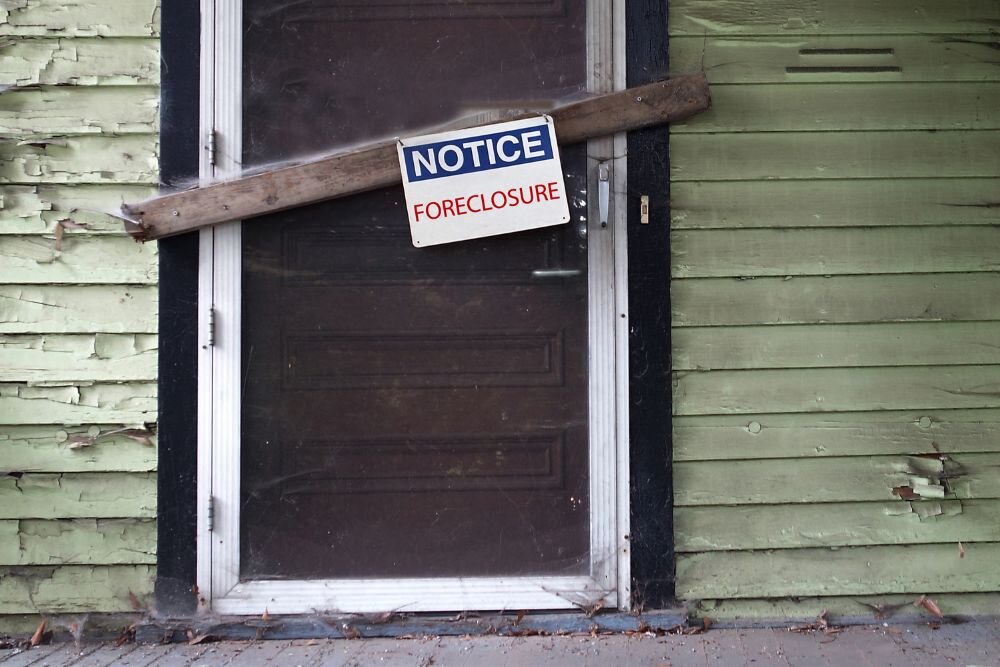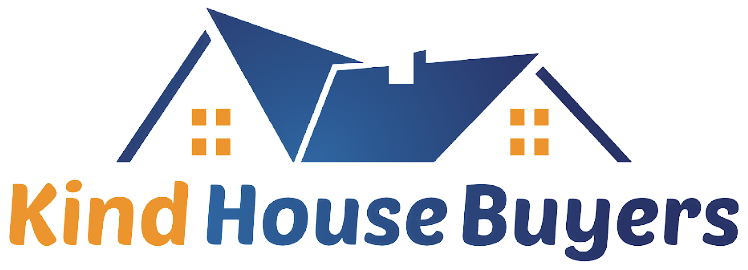Evaluating the Pros and Cons of Living in an Hoa Community
Living in a homeowners association (HOA) community in Washington comes with its own set of advantages and disadvantages, which are important to consider, especially when evaluating HOA foreclosure rights. One of the key benefits is the well-maintained environment that HOAs typically provide, as they enforce rules and standards that keep properties in excellent condition and preserve property values.
People who value a clean community with common areas like pools, parks, and clubhouses may find this very attractive. Nevertheless, there are costs associated with these benefits.
The HOA has stringent rules that homeowners must follow, which could be limiting or oppressive at times. In order to pay for upkeep and community activities, residents are expected to pay dues either monthly or annually. Serious repercussions, such as fines or even foreclosure proceedings, might result from unpaid dues.
Understanding your financial obligations and rights within an HOA is crucial, as these organizations have significant power under Washington state law to initiate foreclosure proceedings if assessments remain unpaid. Therefore, while living in an HOA community offers security and aesthetic benefits through collective management, it also demands compliance with rules and an understanding of potential risks associated with non-payment.
Understanding Homeowners Associations: Roles and Responsibilities
When it comes to community management and property value preservation, Homeowners Associations (HOAs) are indispensable. They are in charge of collecting dues, keeping common spaces clean, and enforcing community rules.
HOAs have the authority to set and enforce covenants, conditions, and restrictions (CC&Rs) that homeowners must follow to maintain the aesthetics and livability of the neighborhood. These associations collect regular assessments from homeowners to fund community expenses such as landscaping, security, and maintenance of shared amenities like pools or clubhouses.
HOAs also have the responsibility to settle conflicts among members and handle breaches of community rules. For homeowners in Washington, knowing these duties and obligations is absolutely vital as ignoring HOA laws could result fines or perhaps foreclosure actions should dues stay unpaid.
To protect their property effectively, homeowners need to be aware of their rights under Washington state law regarding HOA foreclosures and understand how HOA fees at closing can affect their property transactions.
Understanding Cc&rs: Covenants, Conditions, and Restrictions Explained
Covenants, Conditions, and Restrictions (CC&Rs) are important parts of a Homeowners Association (HOA) and are used to rule communities in Washington. These legally binding papers spell out specific rules and laws that homeowners must follow. This keeps property values high and everyone gets along in the neighborhood.
CC&Rs typically cover a wide range of topics such as architectural guidelines, property maintenance requirements, and restrictions on alterations or modifications to homes. Understanding CC&Rs is essential for homeowners as they provide clarity on what is permissible within the HOA’s jurisdiction.
They can also include stipulations about common area usage and dictate how disputes are managed. Importantly, CC&Rs grant HOAs the authority to enforce these rules through various means, including imposing fines or taking legal action.
If homeowners don’t follow these rules or fall behind on their dues, HOAs may go through foreclosure as a last resort to get back the money they’re owed in assessments. This demonstrates how crucial it is to comprehend these guidelines in their entirety before purchasing a house in a HOA-governed community in Washington.
Important Distinctions Between Required and Voluntary Hoas

People in Washington who are worried about their foreclosure rights need to know the difference between optional and mandatory homeowners associations (HOAs). Vocational HOAs are groups that people can join or not. If people don’t join, they are not officially required to follow the rules or pay dues.
Consequently, a voluntary HOA typically lacks the authority to initiate foreclosure proceedings if a homeowner fails to pay dues. In contrast, a mandatory HOA requires all homeowners within its jurisdiction to become members as part of their property purchase agreement.
Homeowners therefore have to follow the association’s covenants and pay assessments often. Not doing so could lead to legal action by the required HOA under certain state law conditions, including lien on the property or foreclosure.
Understanding these key differences helps homeowners navigate their rights and responsibilities within each type of association, especially regarding potential foreclosure actions in Washington State.
Comparing Hoas with Other Forms of Community Management
In Washington, a comparison with other community management structures, like cooperative housing and condominium organizations, is necessary to comprehend the subtleties of Homeowners Association (HOA) foreclosure rights. HOAs have the authority to impose liens on properties for delinquent dues because of the legal frameworks under which they operate.
This is similar to condominium associations, which also have lien rights but are often governed by different state statutes. Cooperative housing, on the other hand, typically involves a shared ownership model where residents hold shares in a corporation rather than owning individual units outright.
This difference has an impact on how foreclosures are managed; in a co-op, the procedure typically entails regaining shares rather than taking actual property, but in a homeowner’s association, foreclosure proceedings can be started directly against a homeowner’s property. Furthermore, whereas condominium associations may place more emphasis on maintaining common areas and shared facilities, homeowners associations frequently have comprehensive rules and covenants that members must abide by.
Understanding these differences is crucial for homeowners navigating potential foreclosure risks within various community management structures in Washington.
Legal Rights of Homeowners in Washington State
In Washington State, homeowners have specific legal rights when it comes to HOA foreclosure processes that are critical to understand. Homeowners associations (HOAs) can initiate foreclosure proceedings if dues or assessments are not paid, but they must adhere strictly to state laws designed to protect homeowners.
According to Washington law, HOAs must provide residents adequate notice of delinquency and the possibility of foreclosure so they can make any necessary payments before losing their houses. The HOA must also adhere to a judicial foreclosure procedure, which entails bringing a lawsuit in court and providing homeowners with an opportunity to argue their position and refute any allegations.
Homeowners are informed of their rights and obligations through this process, which ensures transparency and fairness. Additionally, after debts are satisfied, the homeowner is required by Washington law to receive any excess cash from the foreclosure auction.
Understanding these legal protections is essential for homeowners facing potential foreclosure by an HOA in Washington State, especially those also selling a house in bad condition
Homeowners’ Financial Obligations Under Hoa Jurisdiction
Homeowners living in communities governed by a Homeowners Association (HOA) in Washington must understand their financial responsibilities to avoid the risk of foreclosure. Under HOA jurisdiction, homeowners are required to pay regular dues and assessments, which fund community maintenance and improvements.
Usually, the association’s governing documents—such as the Covenants, Conditions, and Restrictions (CC&Rs)—describe these fees. Penalties, late fines, and eventually legal action by the HOA may result from noncompliance with these financial duties.
In Washington, if homeowners fall behind on payments or refuse to comply with financial commitments, an HOA has the authority to place a lien on the property. This lien can escalate into foreclosure proceedings if not addressed promptly.
Therefore, in order to protect their rights and avoid losing their homes due to foreclosure procedures started by the association, homeowners must be aware of payment schedules and communicate with the HOA in a proactive manner.
The Impact of Hoas on Property Values in Washington
In Washington, Homeowners Associations (HOAs) play a significant role in managing residential communities, and their impact on property values is noteworthy. HOAs enforce rules and regulations that help maintain community standards, which can enhance the aesthetic appeal and overall desirability of a neighborhood.
Maintaining standards helps to raise property values since possible purchasers are drawn to well-kept regions with amenities such swimming pools, parks, and security services. The effect of HOAs on property values, however, may change depending on their financial management and covenant enforcement.
An HOA that is diligent in its duties can bolster property values by ensuring that homes within the community remain attractive and in good repair. Conversely, if an HOA mismanages its responsibilities or becomes embroiled in legal disputes over foreclosure rights or dues collection, it may negatively affect property values as prospective buyers shy away from potential conflicts or unexpected financial liabilities.
Understanding how HOAs operate in Washington is crucial for homeowners concerned about both foreclosure rights and maintaining or increasing their home’s market value.
Tips for Attending and Participating in Hoa Meetings Effectively

Being well-prepared and knowledgeable is essential for participating in HOA meetings in Washington, particularly when talking about foreclosure rights. Start by carefully going over the agenda for the meeting and any supporting materials that were supplied in advance. It’s crucial for homeowners to be proactive in attending meetings and staying informed about any amendments or decisions that could affect their property rights. In cases where disputes arise, homeowners should first attempt negotiation or mediation with the HOA board to seek a resolution.
This preparation allows you to understand the topics of discussion and formulate relevant questions or comments, particularly concerning your rights and responsibilities in the context of HOA foreclosure processes. Arriving early can provide an opportunity to engage with board members or other homeowners informally, fostering a more collaborative environment.
During the meeting, actively listen and take notes to ensure that you accurately grasp the proceedings and decisions being made. When speaking, be clear and concise in your communication, focusing on how issues like foreclosure might impact homeowners collectively while respecting the rules of order that guide these meetings.
One of the most important things a homeowner can do to protect their interests from the HOA’s foreclosure activities is to engage with others who have different opinions and try to understand them. In order to assert your rights during these meetings, it is important to stay knowledgeable about the state laws in Washington that pertain to HOAs.
How to Amend or Change Your Hoa’s Governing Documents
Amending or changing your Homeowners Association’s (HOA) governing documents in Washington requires a thorough understanding of the existing rules outlined in the covenants, conditions, and restrictions (CC&Rs). It is essential to review these documents carefully to identify the procedures for making amendments.
As required by the current bylaws, the process usually starts with writing up suggested changes and then getting approval from a certain number of homeowners. Making sure that homeowners can vote is very important because big changes might need a supermajority vote.
Engaging with legal counsel specializing in HOA law can provide valuable guidance on complying with state regulations during this process. Effective communication with all association members about proposed changes helps foster transparency and support for amendments.
Once approved, it’s important to officially document and record the changes with local authorities to ensure they are legally binding and enforceable within the community.
Protecting Your Rights as a Condo Owner Within an Hoa
As a condo owner in Washington, it’s crucial to understand how to protect your rights within a Homeowners Association (HOA) and prevent potential foreclosure. Knowing the specifics of your HOA’s governing documents, such as the Covenants, Conditions, and Restrictions (CC&Rs), can help you stay informed about your responsibilities and rights.
If you find yourself facing financial difficulties that could lead to missed HOA dues or assessments, promptly communicate with your association to explore payment plans or other solutions. Washington state law requires HOAs to follow certain procedures before initiating foreclosure, including providing proper notice and adhering to specific timelines.
Learn these legal requirements so that you can be sure that anything the HOA does is legal. Going to HOA meetings is also a good way to stay up to date on changes that could affect your property rights and have a say in decisions that affect the whole community.
Not only does knowing these things keep your home from going into foreclosure, but they also give you more power as an active part of your condo association.
Navigating Hoa Disputes: a Homeowner’s Guide
Navigating HOA disputes in Washington requires a clear understanding of the rights and obligations inherent to both homeowners and homeowner associations (HOAs). Homeowners must familiarize themselves with the governing documents, such as the Declaration of Covenants, Conditions, and Restrictions (CC&Rs), which outline the rules and regulations enforced by the HOA.
Homeowners must take the initiative to attend meetings and keep up with any decisions or revisions that may have an impact on their property rights. When disagreements occur, homeowners should try to resolve them with the HOA board through mediation or discussion.
Understanding state-specific laws is essential, as Washington law provides certain protections against foreclosure; for instance, an HOA may initiate foreclosure proceedings if assessments remain unpaid, but specific legal processes must be followed. Knowing these procedures can help homeowners protect their property from wrongful foreclosure actions.
When it comes to resolving issues and making sure you’re in compliance with state laws and HOA regulations, it can be helpful to seek legal guidance.
Essential Steps for Resolving Hoa Conflicts Amicably
In Washington, resolving conflicts with your Homeowners Association (HOA) amicably is crucial to prevent foreclosure and maintain harmony within the community. The first step in managing disputes is to thoroughly review the HOA’s governing documents, such as the Covenants, Conditions, and Restrictions (CC&Rs), bylaws, and rules, which outline both your rights and obligations as a homeowner.
It is absolutely critical to have an open line of communication with the HOA board. When problems arise, it’s best to talk about them right away so that you can find solutions that everyone is happy with. You can keep yourself apprised of decisions or changes that could impact your property rights by attending HOA meetings on a regular basis.
If disagreements persist, consider employing mediation services or seeking advice from a professional mediator who specializes in HOA disputes. Keeping detailed records of all communications and transactions with the HOA can provide valuable evidence if further legal action becomes necessary.
By understanding these essential steps and actively participating in the resolution process, homeowners can effectively mitigate risks associated with HOA foreclosure while fostering a cooperative relationship within their community.
The Role of Mediation and Arbitration in Resolving Hoa Disputes
When it comes to homeowner-HOA issues in Washington, mediation and arbitration play an important role, particularly when foreclosure rights are involved. To prevent the harsh consequences of losing one’s home, these alternative dispute resolution approaches provide a less combative channel than litigation, enabling the parties to discuss arrangements.
Mediation involves a neutral third party who facilitates discussions between the homeowner and the HOA, aiming to reach a mutually agreeable solution that could prevent foreclosure. Arbitration, on the other hand, involves an arbitrator making binding decisions after hearing both sides of the argument.
Going through this process is often faster and cheaper than going to court. Mediation and arbitration can both help clear up confusion about HOA rules and fees, making sure that any actions that lead to foreclosure are legal and fair.
In Washington, these processes are encouraged as they provide homeowners with opportunities to contest or negotiate their obligations without immediately resorting to foreclosure threats by HOAs.
Strategies for Challenging Unfair Hoa Fees
Homeowners in Washington who are in danger of losing their homes because of unfair Homeowners Association (HOA) fees can fight these fees in a number of ways. First, it’s important to carefully read the HOA’s governing papers, such as the bylaws, CC&Rs (Covenants, Conditions, and Restrictions), and any changes to them.
Understanding these documents can reveal whether the HOA is acting beyond its authority in levying certain fees. Additionally, homeowners should scrutinize all communications and billing statements from the HOA to identify discrepancies or unauthorized charges.
Talking to the HOA board in an open way can sometimes settle disagreements without going to court. If that doesn’t work, mediation or arbitration might be a more official way to settle the disagreement without going to court right away. A lawyer who specializes in real estate or HOA law can give you very useful information about the laws in your state that protect homes from unfair foreclosure actions because of unpaid dues.
By leveraging these strategies, homeowners can potentially halt or reverse wrongful foreclosure proceedings initiated by an overreaching HOA.
Effects of Hoa Rule Breaches in Washington
Homeowners in Washington living in Homeowners Association (HOA) controlled communities have to follow certain policies and procedures. Breaking these policies could have grave repercussions including penalties and property liens.
If a homeowner repeatedly fails to comply with HOA regulations or neglects to pay the associated fines, the HOA may escalate actions by imposing a lien. This lien can eventually result in foreclosure proceedings if not resolved.
Even though state laws protect homes in some ways by giving them chances to fix problems caused by violations, people who don’t follow the rules can still be taken to court. It’s very important for landlords to know their association’s rules and what could happen if they break them, because doing so could have a big effect on their property’s title and ownership status.
People who live in Washington who are part of a HOA must know their rights and responsibilities under both state law and HOA rules. If they don’t, the HOA can punish them financially or even foreclose on their homes.
Foreclosure Laws for Hoa Dues in Washington
In Washington State, homeowners’ associations (HOAs) possess specific foreclosure rights concerning unpaid dues. Under state law, HOAs can initiate foreclosure proceedings if a homeowner falls behind on their assessments.
How to Protect Your Property From Hoa SeizureThe Washington Condominium Act and the Homeowners’ Association Act are the laws that say these things can be done. Before going after foreclosure, a HOA usually has to put a lien on the property for past-due fees.To protect your property from an HOA seizure in Washington, it is essential to understand your rights and obligations under state law and your specific HOA agreement. Begin by thoroughly reviewing the governing documents of your homeowners association, including the covenants, conditions, and restrictions (CC&Rs), as these will outline the rules regarding fees and assessments.
This lien gives the HOA the legal right to get back past-due fees by foreclosing in court or without going to court. Homeowners should know that even small amounts of late HOA dues can lead to serious legal problems that could even mean losing their property.
To stay safe, Washington homeowners should know what their rights and responsibilities are under these laws. They should also know if there are any ways to fix past due bills and work out payment plans with their HOAs to keep their homes from going into foreclosure.
How to Protect Your Property From Hoa Seizure

Understanding your rights and responsibilities under state law and your particular HOA agreement will help you to safeguard your property from a HOA seizure in Washington. As they will specify the policies on fees and assessments, start by carefully examining the governing documents of your homeowners association, especially the covenants, conditions, and restrictions (CC&Rs).
Ensure that all HOA dues are paid on time to avoid liens or foreclosure actions. If you face financial difficulties, communicate proactively with your HOA to negotiate a payment plan or seek assistance programs they might offer.
Familiarize yourself with Washington state laws regarding HOA foreclosures, as these regulations require certain procedures before an association can initiate foreclosure proceedings. It is advisable to consult with a real estate attorney who can provide guidance on navigating disputes with your HOA and protecting your home from potential seizure due to unpaid assessments.
By staying informed and proactive, you can significantly mitigate the risk of losing your property to an HOA foreclosure in Washington.
If someone lives in Washington State, can their HOA kick them out?
Homeowners in Washington State need to know what their Homeowners Association (HOA) can and can’t do when it comes to debt and eviction. It is possible for a HOA in Washington to start the foreclosure process if a homeowner doesn’t pay their dues or fees.
It’s important to remember, though, that a HOA can’t directly kick out a homeowner like a landlord can with a renter. Instead, the process includes legally taking back the property because the dues have not been paid. If the debt is not paid, the homeowner could lose their home.
The process of foreclosure is controlled by state rules, which make sure that homeowners are given enough notice and time to pay off any debts before anything happens. Homeowners in Washington should know what their rights are and talk to a lawyer if their HOA wants to foreclose on their home.
Understanding these processes helps protect homeowners from unexpected loss of property while acknowledging the enforcement powers granted to HOAs for maintaining community standards and financial health.
Can You Lose Your House If You Don’t Follow Hoa Rules?
In Washington, homeowners must be aware of the potential consequences of not adhering to Homeowners Association (HOA) rules, as non-compliance can lead to significant issues, including the risk of foreclosure. HOAs have specific regulations and covenants that residents are required to follow, and failure to comply can result in fines or penalties.
If these fines are not paid, they may accrue over time and lead to a lien being placed on the property. In severe cases, this can escalate to an HOA foreclosure proceeding.
It’s crucial for homeowners to understand their rights and obligations under both state law and their specific HOA agreements. Washington law provides certain protections, but it also allows HOAs some power in enforcing community standards through legal means.
Therefore, it’s essential for homeowners to communicate with their HOA if they’re facing difficulties in complying with rules or paying fines. Understanding the nuances of HOA rights and foreclosure processes can help prevent the loss of one’s home due to non-compliance with association regulations.
Is there a way to get your house out of a HOA?
In Washington, it can be hard to get a house out of a Homeowners Association (HOA) because HOAs are usually set up with legally binding rules that go with the land. Because these covenants are formal agreements that are attached to the property deed, it’s usually not easy to leave a HOA.
Homeowners in Washington seeking to remove their property from an HOA must first thoroughly review the governing documents, including the Declaration of Covenants, Conditions, and Restrictions (CC&Rs). In some cases, it may be possible if there is unanimous or significant agreement among other homeowners within the association to amend these documents.
Legal advice from a real estate attorney familiar with Washington state laws governing HOAs is crucial to navigate this intricate process. Additionally, legislative changes at the state level could potentially impact the feasibility of removing a house from an HOA.
However, understanding your rights and obligations under existing HOA rules and regulations remains essential for any homeowner considering such actions in Washington.
What Is an Example of Abuse of Power in Hoa?
Abuse of power in a Homeowners Association (HOA) can manifest in various ways, particularly when it comes to foreclosure rights. In Washington, an example of such abuse might involve an HOA aggressively pursuing foreclosure for minor infractions or small unpaid dues without sufficient communication or attempts at resolution with the homeowner.
This could happen when an HOA board prioritizes strict enforcement over reasonable negotiation, leveraging their authority to initiate foreclosure proceedings prematurely. Such actions can be detrimental to homeowners who may not be fully aware of their rights under Washington law.
The HOA might also impose exorbitant fines for trivial violations, escalating the financial burden on residents and leading to potential foreclosure threats if these fines remain unpaid. Additionally, an HOA board may fail to follow proper procedural steps as outlined in state regulations before initiating foreclosure, further exemplifying misuse of power.
Understanding your legal rights and obligations within the framework of HOA governance is crucial to protecting your home from unwarranted foreclosure actions.
Helpful Washington Blog Articles
- A Complete Guide to Paperwork for Selling a House by Owner In Washington
- Can I Sell My House With a Failed Septic System In Washington
- Can You Legally Live in a House Without Running Water in Washington
- Can You Sell a House in Foreclosure in Washington State
- Do All Heirs Have To Agree To Sell A Property In Washington
- How to Sell Rental Property in Washington State
- How Long After A Foreclosure Auction Must You Move Out In Washington
- How Long Can You Go Without Paying Your Property Taxes in Washington
- How Long Does it Take to Force the Sale of Property in Washington
- How Much Do You Lose Selling a House As Is in Washington
- How Much Does an Estate Have to Be Worth to Go to Probate in Washington
- 10 Cheapest Places to Live in Washington
- How Much Does Home Staging Cost In Washington State
- Can You Sell A House with Unpermitted Work In Washington
- How To File a Quitclaim Deed in Washington State

| HOMEOWNERS’ ASSOCIATION | HOMEOWNER’S ASSOCIATION | HOMEOWNER’S ASSOCIATION | HOMEOWNERS ASSOCIATIONS (HOA) | FORECLOSES | FORECLOSING |
| FORECLOSED UPON | CONDOS | CONDOMINIUMS | INSURANCE | INSURANCE COMPANY | ATTORNEYS |
| MORTGAGE | HOUSING FINANCE | RENTAL | POLICIES | POLICY | FLAG |
| NON-COMPLIANT | LIABILITY | JUDGMENT | RATE OF INTEREST | ATTORNEYS’ FEES | STATUTORY |
| RIGHTS OF PROPERTY | TELEPHONE | CREDITORS | LENDERS | BUDGET | TAX |
| TAXATION | INSURANCE POLICIES | INSURANCE POLICY | FINANCIAL STATEMENTS | EXPENDITURES | |
| DISCRIMINATION | COMPLAINTS | UNITED STATES | AMERICAN | TRUSTEE | REVISED CODE OF WASHINGTON |
| REAL PROPERTY | LEASE | LESSEE | UNITED STATES FLAG | AMERICAN FLAG | US NATIONAL FLAG |
| US NATIONAL FLAG | COOPERATIVES | BOARD OF DIRECTORS | ASSETS | TOOLS | NATIONAL FLAG |
| NATIONAL FLAG | LOAN | LANDLORDS | INFORMATION | NOTICE OF DEFAULT | CONSUMER PROTECTION |
| DEPARTMENT OF COMMERCE | PROPERTY OWNER | TERMS OF USE | REFINANCING | REFINANCED | PRIVACY |
| MONEY | MINUTES | UPKEEP | LIABILITY INSURANCE | SHERIFF’S SALE | BOARD OF DIRECTORS |
| COVENANTS CONDITIONS AND | HOMEOWNERS ASSOCIATION HOA | HOA CAN FORECLOSE ON | THE HOAS GOVERNING DOCUMENTS | BOARD OF DIRECTORS AND | COMMON INTEREST OWNERSHIP ACT |
| HOAS IN WASHINGTON STATE | ON A PROPERTY IF | COVENANTS CONDITIONS AND RESTRICTIONS | THE BOARD OF DIRECTORS |

